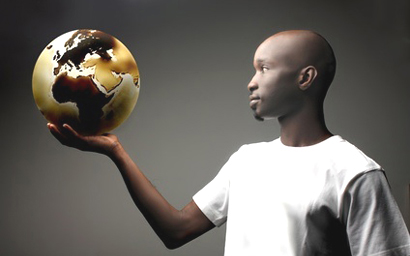The spotlight trained on the world’s least invested-in continent is beginning to shine as brightly as its sun, and last week management consultancy heavyweights, Boston Consulting Group (BCG) and McKinsey & Co, both produced reports talking Africa up.
Is it the World Cup? asks Africa investment specialist, Silk Invest. “Possibly so, but we tend to think that Africa’s shiny reality has now become impossible to ignore when contrasted with the economic hardship most of the world is going through.”
 According to the report from BCG, now is the time, despite the very real problems that some African countries still face, to rethink the conventional view “that Africa – with 20 percent of the world’s land and 15 percent of its population, but just 4% of global growth – has been down so long it will be hard for it ever to rebound”.
According to the report from BCG, now is the time, despite the very real problems that some African countries still face, to rethink the conventional view “that Africa – with 20 percent of the world’s land and 15 percent of its population, but just 4% of global growth – has been down so long it will be hard for it ever to rebound”.
Africa’s GDP grew by 5.3% between 2000-2008 (adjusted for purchasing power parity), says BCG compared with a global rate of 4%. The recession caused by the global financial crisis (alarmingly dubbed ‘the Great Recession’ by BCG) dented that growth in 2009, but African’s GDP still expanded by 2%, as the US, the European Union and Latin America saw decreases.
At $1.6 trillion in 2008, Africa’s collective GDP is now roughly equal to that of Brazil or Russia, notes the McKinsey & Co report. The continent is also among the world’s most rapidly growing economic regions, McKinsey & Co says.
But perhaps the most interesting findings in these two reports relate to the corporate make-up of the African story. Just as renewed interest in Africa isn’t all about the World Cup, the economic story isn’t all about commodities. Soaring commodity prices have helped to lift GDP since 2000, says McKinsey & Co, but that’s not the end of the story.
“Forthcoming research from the McKinsey Global Institute (MGI) shows that resources accounted for only about a third of the new-found growth. The rest resulted from internal structural changes that have spurred the broader domestic economy.”
BCG, meanwhile, focuses on that key indicator of economic maturity: exports. Growth in exports has surged from 3% per annum in the 1990s to 18% since 2000, BCG says, and a group of ‘African challengers’ has grown up that operates internationally. The group is top-heavy and concentrated in South Africa, Egypt and Morocco, but its emergence is the first sign that Africa is not just improving its own economic position, but might also challenge other economies.
“Many of these African companies are – or will be – stiff competitors,” says BCG.
Despite all this promise, professional investors are not exactly rushing into Africa, according to Silk Invest. How to explain it? Fear of sunburn, to extend the sunshine metaphor to breaking point – or of the “wars, natural disasters, or poor government policies [that] could halt or even reverse these gains in any individual country” cited by McKinsey &Co?
“If we had a rational answer, we would be delighted to share it with you but unfortunately we don’t,” says Silk Invest. “What we do know is that investors are certainly running out of excuses not to start investing in Africa. The African markets have only begun and the investors will eventually come…”
Fiona Rintoul, Editorial Director
©2010 funds europe





